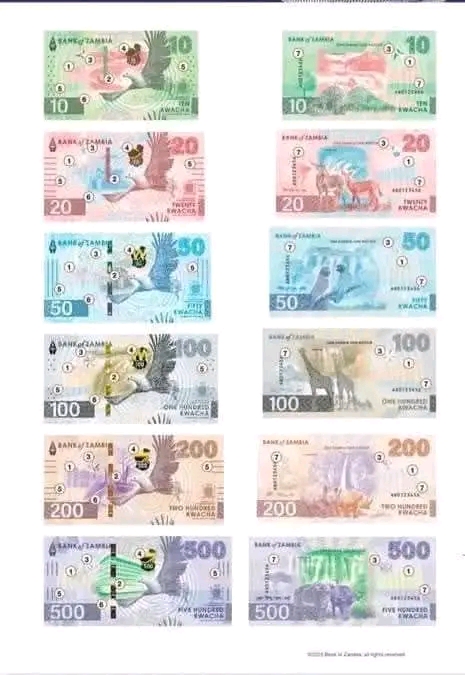Sean Tembo Slams UPND Over New K500, K200 Notes
Opposition leader Sean Tembo has strongly criticized the UPND government’s decision to introduce K500 and K200 banknotes, calling it an admission of failure in managing the country’s economy. Speaking on behalf of the Tonse Alliance, Tembo argued that the move is a sign of Zambia’s deteriorating financial state, warning that if current policies continue, the country could soon face hyperinflation similar to Zimbabwe’s 2008 crisis.
Tembo attributed the introduction of high-denomination notes to the government’s inability to control inflation, which has averaged 16.5 percent under UPND’s leadership. He compared this to the Patriotic Front (PF) administration, which maintained an average inflation rate of 7 percent during its decade in power. He further pointed to the sharp depreciation of the Kwacha, which has fallen from K17.63 per US dollar in 2021 to K28.16 today, as evidence of the government’s economic mismanagement.
In his statement, Tembo blamed the country’s economic woes on the UPND’s decision to grant $3.2 billion in tax holidays to foreign-owned mining companies in 2022. He argued that this move significantly reduced Zambia’s foreign exchange earnings, weakening the Kwacha and making imported goods more expensive. According to him, this policy has led to increased inflation, forcing the government to print larger banknotes as a desperate measure to cope with rising prices.
The opposition leader warned that if the government does not reverse these tax holidays, Zambia could be on a dangerous path toward even larger denominations. He suggested that K1,000, K5,000, or even K20,000 banknotes might be introduced before the end of 2025, drawing parallels to Zimbabwe, where hyperinflation forced the country to abandon its currency in favor of the US dollar.
Tembo described the new banknotes as a temporary fix that does not address the root cause of Zambia’s economic struggles. He argued that real solutions require strengthening local production, reducing dependency on imports, and ensuring that Zambia benefits from its natural resources rather than giving tax breaks to foreign companies.
The Tonse Alliance leader expressed frustration over what he called the government’s unwillingness to listen to alternative economic policies. He stated that opposition parties have consistently advised the UPND to take corrective measures, but their concerns have been ignored. He urged the government to take immediate action before the economic situation worsens further.
Economic analysts have also raised concerns about the implications of introducing higher-value notes, warning that such a move could fuel further inflation. Experts argue that larger denominations often lead to higher cash circulation, reducing confidence in the currency and worsening the economic crisis. Some have called for policy adjustments that focus on strengthening the Kwacha rather than simply printing more money.
Meanwhile, the government has defended its decision, stating that the introduction of K500 and K200 notes is meant to improve cash efficiency and reduce transaction costs. However, critics like Tembo insist that this reasoning does not address the underlying economic challenges, arguing that without structural changes, the value of the Kwacha will continue to decline.
With economic hardship increasing for many Zambians, the debate over the country’s financial future is intensifying. As the 2026 elections approach, opposition leaders are positioning themselves as the solution to Zambia’s economic struggles, while the UPND government continues to defend its policies. Whether the introduction of higher-denomination banknotes will ease or worsen the crisis remains to be seen.
February 12, 2025
©️ KUMWESU
